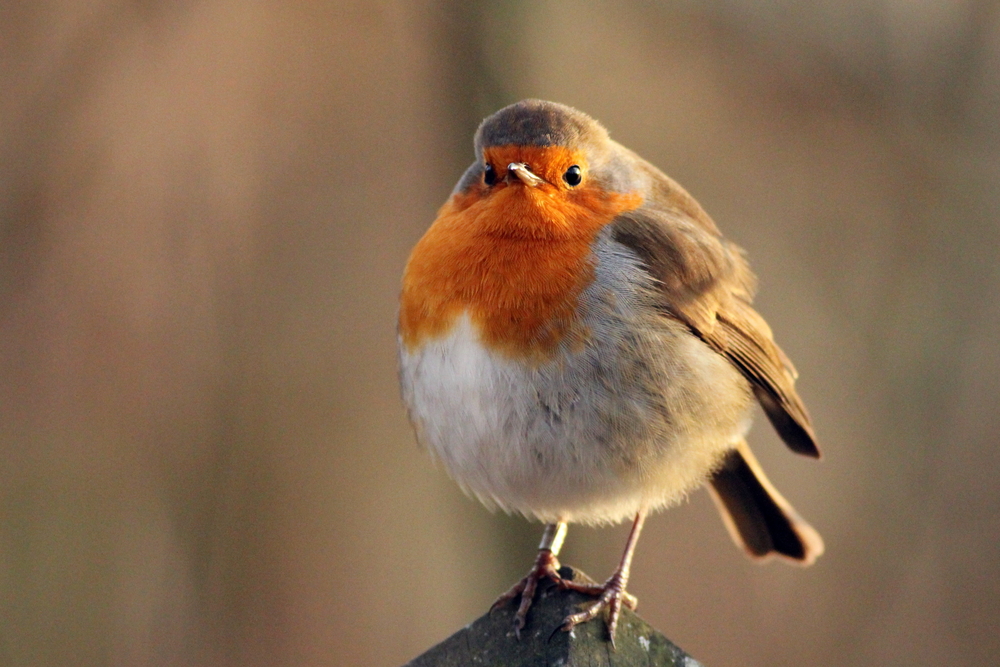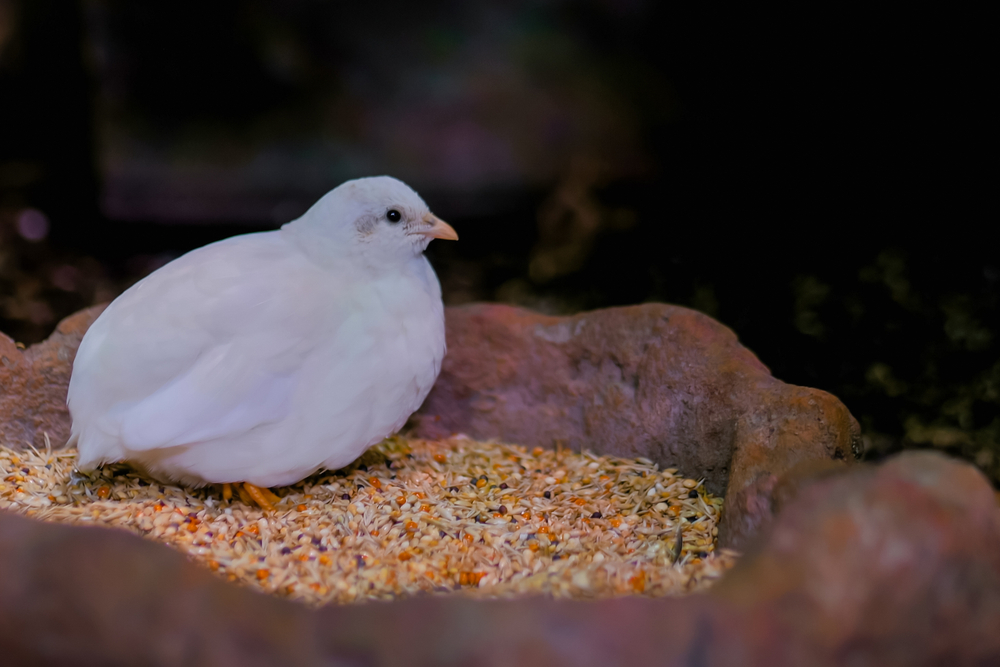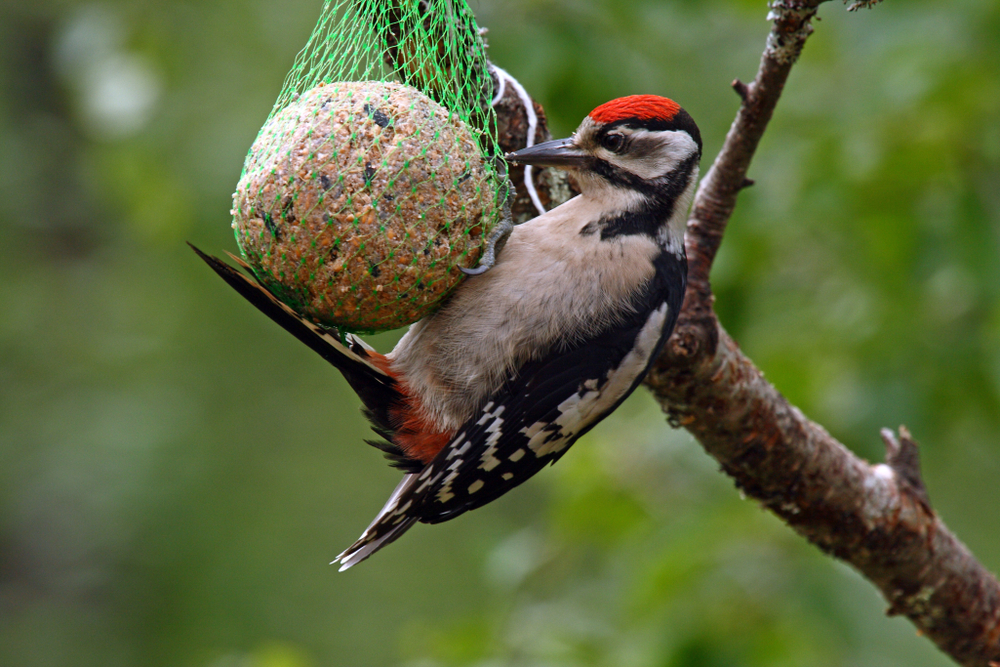Can Birds Get Fat? Birds are known for their ability to fly, but can they get fat? The answer is yes, birds can indeed become overweight. Just like humans and other animals, birds can gain weight if they consume more calories than they burn. However, since birds have feathers, it can be challenging to tell if they are overweight just by looking at them.
Several signs indicate a bird may be carrying extra weight. For example, an overweight bird may have difficulty flying or become out of breath with minimal exercise. Sometimes, an overweight bird’s beak may grow excessively long, which can be a sign of fatty liver disease caused by obesity. It’s essential to monitor your bird’s weight and ensure they are maintaining a healthy diet and exercise routine to prevent obesity.
Understanding Bird Obesity

Obesity is a health problem that affects not only humans but also animals, including birds. Like humans, birds can become overweight and develop health problems. In fact, obesity is a major problem in older birds on seed-based diets. It can contribute to diseases such as atherosclerosis (fat deposits in major arteries) and fatty liver disease (hepatic lipidosis).
Pet birds are often confined to cages, have their wings trimmed to prevent flight, and receive little, if any, exercise. This sedentary lifestyle, combined with a diet high in fat and low in nutrients, can lead to obesity. Additionally, some bird species are more prone to obesity than others, such as cockatiels and lovebirds.
One way to determine if a bird is overweight is by feeling for subcutaneous fat (below the skin). Feathers grow in tracts, so there will be non-feathered areas. One of these areas is along the side of the neck beginning at the base of the jaw. If you part your bird’s feathers to look at this area, you should easily be able to see his jugular vein. If you cannot see the vein, your bird may be overweight.
Observing its behavior is another way to determine if a bird is overweight. Overweight birds may be less active and have difficulty flying. They may also have difficulty perching or climbing.
To prevent obesity in birds, it is important to provide a balanced diet that is low in fat and high in nutrients. This can include a variety of fruits, vegetables, and grains. It is also important to provide opportunities for exercise, such as allowing birds to fly in a safe, enclosed area or providing toys that encourage movement.
In conclusion, bird obesity is a health problem that can be prevented by providing a balanced diet and opportunities for exercise. It is important to monitor a bird’s weight and behavior to ensure that it remains healthy and active.
Causes of Bird Obesity

Obesity in birds is a growing concern among pet owners. A bird is considered obese when it has excessive body fat that can lead to various health problems. Several factors can contribute to bird obesity, including dietary factors, lack of physical activity, species-specific factors, and environmental factors.
Dietary Factors
Diet plays a crucial role in maintaining a bird’s health. Birds that are fed an all-seed diet, especially high-fat seeds like sunflower seeds, peanuts, and walnuts, are at a higher risk of becoming obese. These foods are high in calories and lack the necessary protein, vitamins, and minerals that birds need to maintain a healthy weight. Providing a balanced diet that includes fruits, vegetables, and protein-rich foods is essential to prevent overeating and promote satiety.
Lack of Physical Activity
Birds that live a sedentary lifestyle without much movement are more likely to become obese. A lack of physical activity can lead to a decrease in calorie expenditure, causing the bird to gain weight. Providing ample space to fly, toys to play with, and perches to climb can encourage birds to be more active and burn calories.
Species-Specific Factors
Different species of birds have different metabolic rates and activity levels, making some more prone to becoming obese than others. For example, parrots like Amazon parrots and cockatoos are known to have a slower metabolism and require less food than other species like songbirds and finches. It is essential to understand the specific needs of your bird’s species to prevent overfeeding and promote a healthy weight.
Environmental Factors
Environmental factors such as weather and temperature can also contribute to bird obesity. Birds living in colder climates require more insulation and may need to consume more food to maintain their body temperature. On the other hand, birds living in warmer climates may require less food due to the higher temperature. Providing appropriate feeders and cages that allow for space to fly and climb can also prevent overeating and promote physical activity.
In conclusion, bird obesity is a preventable condition that requires a balanced diet, physical activity, and an understanding of the specific needs of your bird’s species. By providing a healthy environment and promoting healthy habits, you can help your bird maintain a healthy weight and prevent various health problems associated with obesity.
Health Risks of Obesity in Birds

Obesity is a serious health concern for birds, just like it is for humans and other animals. Here are some of the health risks associated with obesity in birds:
Liver Diseases
Obese birds are at a higher risk of developing liver diseases, such as fatty liver disease or hepatic lipidosis. These conditions occur when there is excessive fat buildup in the liver, which can lead to liver failure and even death. Birds that are on a seed-based diet are particularly susceptible to these conditions.
Heart and Respiratory Problems
Obesity can also lead to heart disease and respiratory problems in birds. Excess weight strains the heart, making it harder for the bird to breathe and move around. This can lead to shortness of breath, fatigue, and other symptoms.
Joint and Movement Issues
Birds that are overweight may also experience joint and movement issues. The extra weight strains the legs and joints, making it difficult for the bird to move around. This can lead to arthritis, swollen legs, and other problems.
Other Health Problems
In addition to the above-mentioned health risks, obesity in birds can also lead to other health problems such as atherosclerosis, fatty tumors, and diabetes. Overweight birds may also have a shorter lifespan or reduced life expectancy.
To prevent these health problems, it is important to ensure that your bird is on a healthy, balanced diet and gets plenty of exercise. If you suspect that your bird may be overweight, consult with a veterinarian to develop a weight loss plan that is safe and effective.
Identifying Obesity in Birds
Obesity is a common problem among pet birds, and it can lead to serious health issues. In this section, we will discuss how to identify obesity in birds.
Visual Indicators
One of the most obvious signs of obesity in birds is the accumulation of fat deposits on their body. In some cases, these deposits may be visible under the skin, making the bird appear lumpy or misshapen. Additionally, an overweight bird may have a larger than normal abdomen, and its breast muscles may be obscured by excess fat.
Another visual indicator of obesity in birds is the condition of their feathers. An overweight bird may have dull, oily feathers that lack the luster and shine of healthy feathers. They may also have difficulty preening themselves, leading to matted or unkempt feathers.
Behavioural Changes
Obesity can also cause changes in a bird’s behaviour. An overweight bird may be less active than usual, spending more time perched and less time exploring or climbing. They may also have difficulty flying or may avoid flying altogether. In some cases, an obese bird may even have difficulty breathing due to the strain on its respiratory system.
Veterinarian Diagnosis
If you suspect that your bird is overweight or obese, it is important to consult with a veterinarian. A veterinarian can perform a physical examination and may also order blood tests or x-rays to determine the extent of the bird’s obesity. In some cases, a veterinarian may also recommend a dietary or exercise plan to help the bird lose weight.
It is important to note that not all lumps on a bird’s body are fat deposits. Some birds may develop lipomas, which are benign tumors that may be mistaken for fat deposits. If you notice any unusual lumps or growths on your bird’s body, it is important to have them evaluated by a veterinarian.
In conclusion, identifying obesity in birds is important for maintaining their health and well-being. By monitoring your bird’s weight, diet, and activity levels, you can help prevent obesity and ensure that your bird stays healthy and happy.
Preventing and Managing Bird Obesity
Obesity is a common problem among pet birds, and it can lead to several health issues. Here are some tips for preventing and managing bird obesity:
Proper Diet
A healthy diet is essential for preventing obesity in birds. A balanced diet should include a variety of foods, including fresh fruits, vegetables, and high-quality pellets. Seeds and nuts are high in fat and should be given in moderation. Sunflower seeds, in particular, should be avoided as they are high in fat and low in nutrition.
Encouraging Physical Activity
Physical activity is crucial for maintaining a healthy weight in birds. Providing toys and perches that encourage movement can help keep your bird active. Additionally, giving your bird space to fly and providing opportunities for exercise outside of the cage can be beneficial.
Regular Vet Check-ups
Regular check-ups with a veterinarian can help prevent and manage obesity in birds. Your veterinarian can help you develop a diet and exercise plan that is tailored to your bird’s specific needs. They can also monitor your bird’s weight and health to ensure they are maintaining a healthy weight.
Creating a Conducive Environment
Creating a conducive environment for your bird is essential for preventing and managing obesity. Providing an appropriately sized cage for your bird and allowing them space to move around can help prevent obesity. Additionally, ensuring that your bird has access to fresh water and a clean environment can help keep them healthy.
In conclusion, preventing and managing obesity in birds requires a combination of proper diet, physical activity, regular vet check-ups, and creating a conducive environment. By following these tips, you can help ensure that your bird maintains a healthy weight and lives a long, healthy life.
For More Info : https://www.audubon.org/
Can birds become overweight?
Yes, birds can become overweight if they eat more calories than they burn. This can happen when they are fed a diet that is too high in fat or when they are given too many treats.
How can you tell if a bird is obese?
You can tell if a bird is obese by looking at its body shape. An obese bird will have a round, bulging abdomen and may have difficulty moving around or flying. Its feathers may also be fluffed up.
Do birds get obese in the wild?
Obesity is less common in wild birds because they have to work harder to find food and are generally more active. However, it can still happen if they have access to a lot of high-fat food sources.
Can obesity prevent birds from flying?
Yes, obesity can prevent birds from flying. When a bird is overweight, it may have difficulty getting off the ground or staying in the air for long periods of time. This can make it more vulnerable to predators and other dangers.
What are the health risks of an overweight bird?
Obesity can cause a number of health problems in birds, including diabetes, respiratory disorders, and high blood pressure. It can also increase the risk of fatty liver disease and other types of tumors.
How can you help your bird lose weight?
You can help your bird lose weight by providing it with a balanced diet that is low in fat and high in nutrients. You should also encourage it to exercise by providing toys and activities that will keep it active. It’s important to work with a veterinarian to develop a safe and effective weight loss plan for your bird.